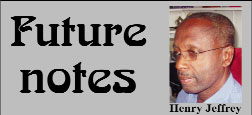“Studying history . . . helps [us] to develop a sense of ‘shared humanity’; to understand themselves and ‘otherness,’ by learning how they resemble and how they differ from other people, over time and space; to question stereotypes of others, and of themselves; to discern the difference between fact and conjecture; to grasp the complexity of historical cause; to distrust the simple answer and the dismissive explanation; to respect particularity and avoid false analogy; to recognize the abuse of historical ‘lessons,’ and to weigh the possible consequences of such abuse; to consider that ignorance of the past may make us prisoners of it; to realize that not all problems have solutions; to be prepared for the irrational, the accidental, in human affairs; and to grasp the power of ideas and character in history.” (The Bradley Commission on History in Schools established in 1987 given the expressed concerns about the quantity and quality of the history teaching in American schools.)
History comes in various types: social, economical, political, diplomatic, intellectual, cultural, etc. but our concern here is with Guyanese political history which, at the very least, should attempt to


